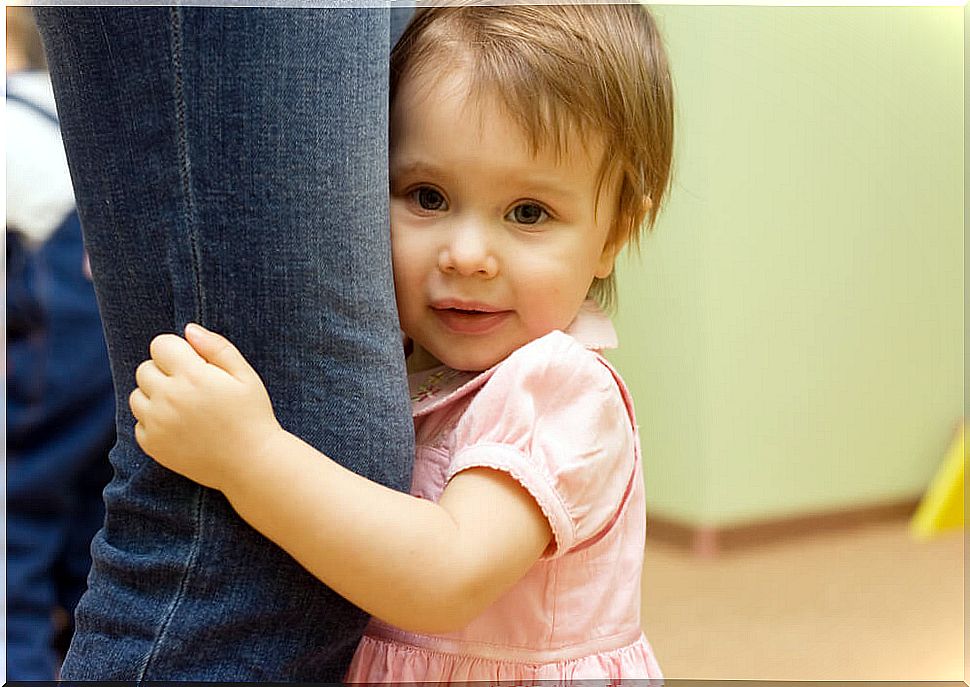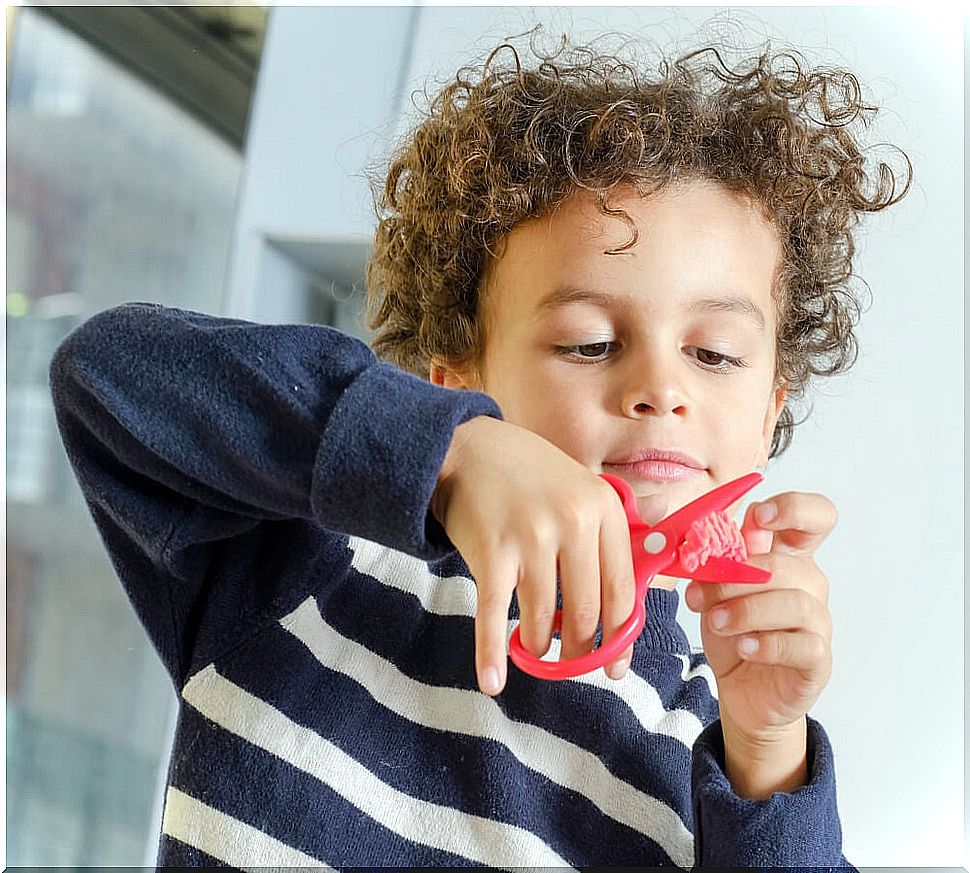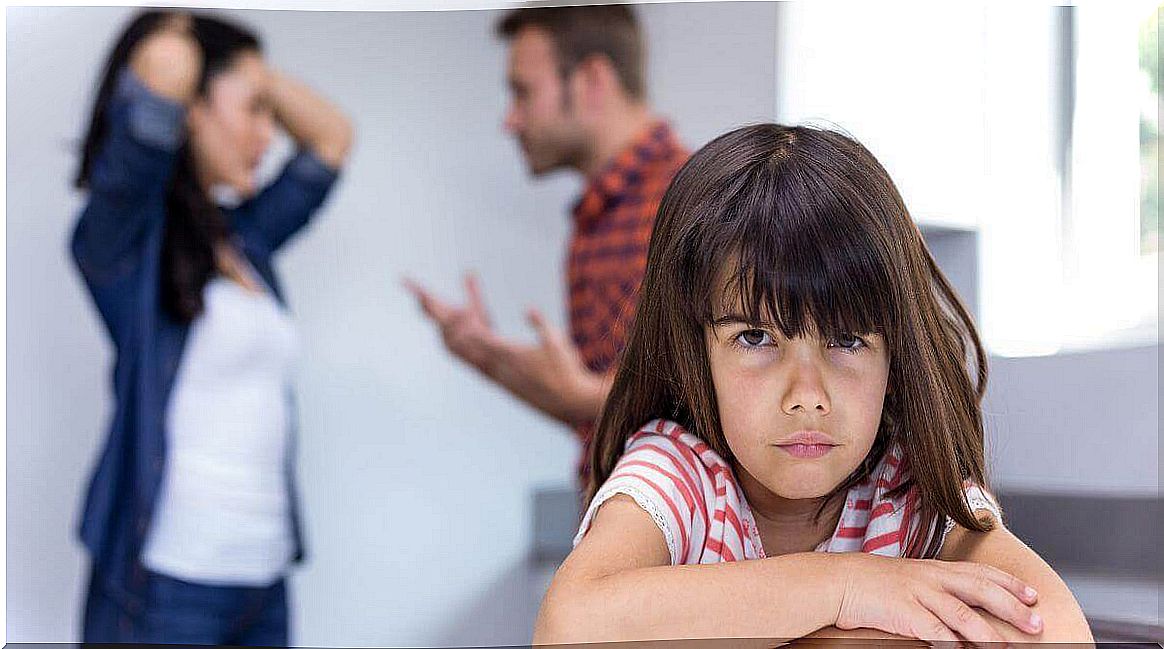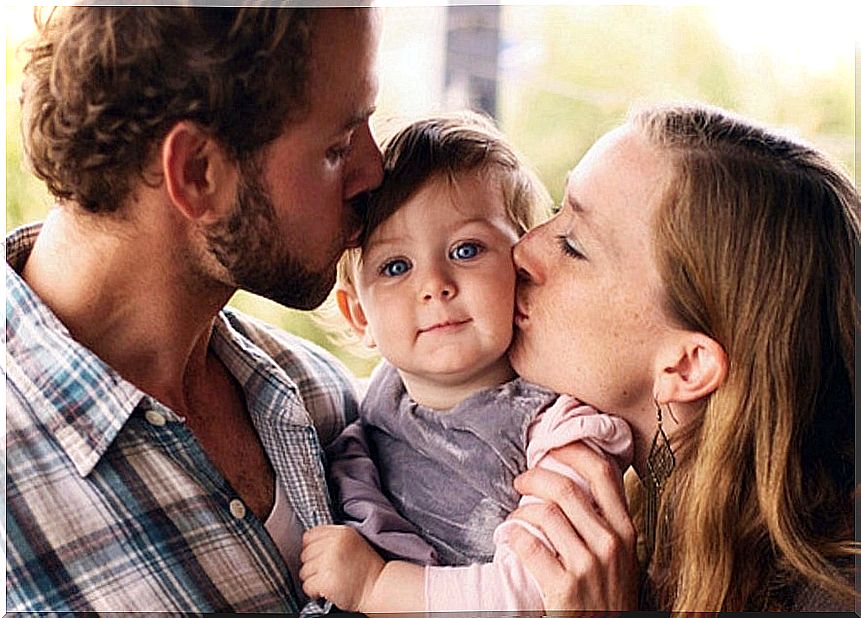Consequences Of Arguing In Front Of The Child
Couple fights cannot be avoided, they are necessary when there are situations to resolve. However, what we must prevent is that they turn into fights and, of course, try not to argue in front of the child.
In this context, we must differentiate between reasonable discussions, in which different points of view are assertively exposed, with tolerance and respect, and aggressive ones.
Children who witness verbal and physical attacks experience a sense of distress that later transforms into feelings of anger, sadness, or fear. And when they are babies, the psychological consequences are greater.
Let’s go deeper.
Consequences of arguing in front of the child
1. At a subconscious level when they are babies

Newborns are able to register in their subconscious the moods of those around them, including the tone of voice and gestures. Just as they perceive love around them, they also feel when the situation is tense, when the tone of voice is angry or if the gaze expresses aggressiveness.
2. In their emotional development
No matter the magnitude of the arguments, growing up in a tense family climate can cause deep emotional upheaval. Thus, arguing in front of the child favors the appearance of problems such as anxiety and lack of self-esteem.
A quiet environment, where the child is not involved in adult conflicts, will contribute to a harmonious psychological development.
3. In a preschool-age child
At this stage, the child has not fully developed language and seeks to express himself through non-verbal communication. Therefore, after an argument they may cry or become impertinent, making it difficult to comfort them.
Preschool-age children are still unaware of the causes of the conflict. However, their still self-centered thoughts lead them to take responsibility for the altercation, and they tend to feel guilty for the tension between their parents.
Reactions may vary depending on each child. Some act as if nothing is wrong; others may develop a terrible fear and, as we have discussed before, some express their emotions by crying hysterically.
They also tend to express their dislike through changes in the rhythm of sleep or eating. They may regress to earlier stages of development, such as wetting the bed, being irritable, or being aggressive when doing activities.
4. In a school-age child

At this age they begin to understand what happens. They may feel scared or anxious and have feelings of guilt towards the father or mother.
For this reason, they feel obliged to take sides. Girls tend to side with the mother, while boys tend to defend their father.
In general, the little ones get used to the frequent arguments. And it is precisely these that create an unstable or dysfunctional family climate.
This can generate in children the need to have the situation under control. Also, it can lead them not to express their true needs to avoid some displeasure.
Children and offensive arguments
The child should never be used to offend or go against the other parent, especially when the parents are separated or divorced.
Discussions are generated in all families, but it is important to make an effort to be understanding, because each human being is different. Ideally, the child sees that his parents understand and appreciate each other, even if they are no longer a couple.
It is preferable to discuss in a place away from children

Arguments should always take place where the children are not present. They are likely to know that their parents have argued, but they won’t feel like they are part of the fight.
Children, especially the youngest ones, are not capable of interpreting beyond words, they believe everything to the letter. If you listen to their true parents phrases like: “I’m tired (a) you!”, “I do not want to see you again!”, Not only were frightened, but they also feel insecure because they think that their parents can leave them .
Going to couples and family therapy can be helpful
Attending couples therapy serves to improve communication and restore a balance between spouses. For its part, family therapy is ideal when the child presents inappropriate behaviors or psychosomatic symptoms that require professional intervention.
In this process, the therapist helps the entire family nucleus in order to promote positive relationships.
Talking with children is important
Sometimes arguing in front of the child is unavoidable. In these cases, it is important to explain to them that all people get angry, even when they love each other. Take advantage of the moment of dialogue to convince him that a parental argument has nothing to do with him.
If the conflict is already solved, it can be used to carry out family activities. If this is not the case, you should not pretend that it is resolved because children are able to perceive the tension.
Parents as a role model

Parents are a fundamental role model for children. Seeing a parent being abused verbally or physically will create a deep wound that can have consequences on the child’s personality and the adult they will become.
It is essential to teach them that people, when they have different opinions, must resort to dialogue and that an environment of tolerance and respect can be created without the need to get angry, yell or say unpleasant words.









